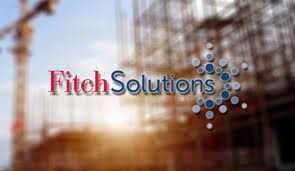Ghana’s economy will not return to the five-year pre-Covid-19 pandemic average growth rate of 5.3% in 2025
According to Fitch Solutions, this is due to the International Monetary Fund-support programme which a new government will continue in 2025.
“We do not think economic growth will return to the five-year pre-pandemic average of 5.3% next year. After the December 2024 general election, we anticipate that the incoming government will resume fiscal consolidation in 2025, in line with Ghana’s Extended Credit Facility arrangement with the IMF”.
“This will likely involve broadening the tax base and reducing public spending, which will cap consumption growth. In addition, high import growth due to stronger consumer and business activity will weigh on net exports and limit real Gross Domestic Product (GDP) growth in 2025”, it added.
The London-based firm had projected a real GDP of 4.3% for Ghana in 2024, after a weak 2.9% in 2023.
Data published by Ghana Statistical Service shows that real economic growth accelerated to 4.7% year-on-year in quarter one from 3.8% in quarter 4 2023—marking the fastest expansion in over two years.
Private consumption to stay strong
Fitch Solutions said private consumption will stay strong over the remaining quarters of the year. While inflation remained sticky in quarter one—averaging 24.2%— it expect that it will trend downwards and reach 19.5% by year-end.
This will alleviate some financial pressure on households and support consumer spending on goods and services.
Fixed investment to continue recovery
Furthermore, it said fixed investment will also continue its recovery in the coming quarters, after a weak 2023.
As a result of the Bank of Ghana’s 2021-23 monetary tightening cycle, during which it raised the benchmark policy rate by 1,550 basis points to 30.0%, real borrowing fell by an average of 26.1% last year.
While interest rates will remain significantly higher than before the BoG’s hiking cycle, it expects that lower inflation, progress regarding the restructuring of Ghana’s external debt, and IMF disbursements will gradually restore business confidence.
Infrastructure investment to be primary catalyst of fixed capital formation
It also expects that infrastructure investment will be the primary catalyst of gross fixed capital formation this year, with major projects like the Marine Drive Tourism development in Accra and the extension of the Kumasi-Paga railway set to boost activity in the construction sector.
In addition, the expected implementation of a progressive oil royalties regime will likely drive up capital investment in the hydrocarbons industry, particularly in the upstream exploration and production sectors. All told, we project fixed investment to expand by 8.7% this year, after a contraction of 28.3% in 2023, and add 1.2pp to headline economic growth.
Latest Stories
-
‘We pampered them too long; now they’re biting,’ Franklin Cudjoe says of nurses’ strike
46 minutes -
EC to update Parliament on Ablekuma North deadlock this week
48 minutes -
Share a Coke magic of finding your name on the iconic bottle returns
50 minutes -
See list of 25 private schools added to the free SHS programme
52 minutes -
Coding is no longer enough: Why Africa needs AI literacy in every school
58 minutes -
Ghana risks economic strain if Israel-Iran tensions escalate – Collins Adomako
1 hour -
Bridging the AI Education Gap: How African schools can leapfrog into the future
1 hour -
Today’s Front pages: Monday, June 16, 2025
1 hour -
Minority raise concerns over delayed disbursement of common funds
1 hour -
Appolonia City provides hot meals for BECE candidates in major CSR initiative
1 hour -
Dubai’s AI Operating System: A strategic blueprint for governments and future of African economies
2 hours -
Telecel Ghana Foundation brings healing and hope to James Camp Prison for Father’s Day
2 hours -
Help us improve our food systems – NAFCO appeals to WFP
2 hours -
Ahiagbah calls for Health Minister’s resignation over GRNMA strike
2 hours -
Attorney General’s NSA update serves public interest – Franklin Cudjoe
2 hours

